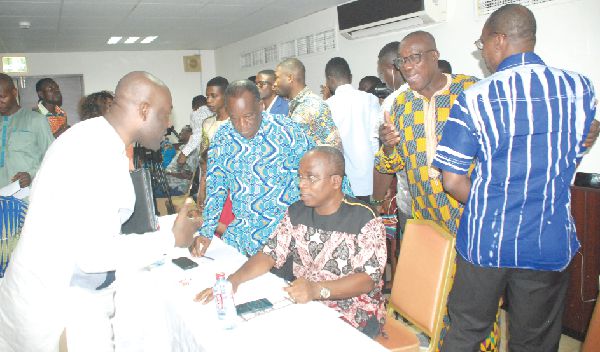
Mechanism on safe, responsible journalism launched in Accra
Ghanaian journalists’ demand for punishment of people who assault them in the line of duty may soon be realised with the establishment of a national coordinating mechanism on safe and responsible journalism.
Among stakeholders charged with the responsibility for the draft mechanism which is expected to be ready by November this year, are media representatives, the government and civil society organisations.
Advertisement
Their mandate will include rolling out interventions to ensure the prevention of attacks on journalists, protection of journalists and the prosecution of persons involved in attacks against journalists, among other measures.
Led by the Ministry of Information and United Nations Educational, Scientific and Cultural Organisation (UNESCO), the body will also provide a framework for the validation of attacks and threats on journalists in Ghana as well as educate stakeholders on the need to ensure a safe and responsible media environment in the country.
Occasion
This was announced at a workshop on the validation of the draft mechanism where speakers condemned all forms of attacks on journalists. They, however, urged the Ghanaian media to work in a manner that did not compromise the ethics of their profession.
Appeal
The Minister of Information, Mr Kojo Oppong Nkrumah, urged stakeholders not to be entrenched in their positions, but be dispassionate in their deliberations as advocates for free media and responsible journalism in the country.
He said free and responsible journalism should not be the duty of one entity but the collective responsibility of all stakeholders, stressing that we need “an environment in which journalists can operate freely, raise issues they deem fit freely and even make mistakes freely and expect that normal legal channels will be used in addressing those mistakes.”
Mr Nkrumah said abuses on the media by security personnel and political actors needed to be discussed thoroughly to prevent such occurrences in the country.
The minister, however, observed that the absence of proper validations could be the reason for allegations of assault cases on journalists. He expressed the hope that with the establishment of a framework on validation, such accusations could be verified to protect media practitioners and the country’s image.
Scandalous frequency
The President of the Ghana Journalists Association, Mr Affail Monney, said the scandalous frequency of attacks on journalists had the tendency to dim the country’s image as a pinnacle of democratic practice in Africa.
He said with Ghana consistently recognised as the top five democracy in Africa for years, it would be a tragic irony for the country to allow attacks against journalists to fester.
The President, however, expressed worry about journalists taking their personal security for granted while on assignments.
Mr Monney said a way out of the situation was to build the capacity of journalists to be security conscious in order not to fall easy prey to attacks from people he referred to as enemies of press freedom and of democracy.
Balance
The Chairman of the National Media Commission, Mr Yaw Boadu-Ayeboafo, said while the country struggled to ensure that its journalists worked in freedom and safety, journalists must also ensure that they did not injure the psychological safety of people they wrote about.
He said journalists had played a significant role in the growth of the country’s democracy over the years and needed to be accorded recognition and respect.
Mr Boadu-Ayeboafoh urged the participants to contribute effectively to the document to make the mechanism effective to curtail attacks on journalists and also promote responsible journalism.
A global trend
The UNESCO Country Representative, Mr Abdourahamane Diallo, said attacks on journalists was an increasing trend globally with a journalist killed every four days in 2016 and 2017.
He said while Ghana had made giant strides in its democratic credentials and the upholding of human rights, it needed to do more to protect its journalists against attacks.
Recall
The need for such establishment comes on the back of increasing cases of assault on journalists in the country, including the recent murder of an investigative journalist, Ahmed Suale, who was allegedly shot by some unknown assailants at Madina in Accra in January this year.
More than 30 journalists have been assaulted in Ghana in the last 18 months, according to statistics gathered by the Media Foundation for West Africa.
The latest is the arrest and alleged torture of two ModernGhana journalists over claims that they were involved in cyber fraud, a charge they have denied and subsequently gone to court to contest.
Writer’s email: seth.bokpe@gmail.com





